I want to buy stocks in Germany. but can foriners also buy?
In Japan abc
We answer such questions.
In this article How to buy stocks in Germany and what you need to know about investing in Germany. I write.
I was an amateur with little investment experience in Japan.I have compiled the results of all the research I did before starting to invest in Germany.
It has been six months since I started buying stocks in Germany, and so far it has been surprisingly smooth and trouble-free. I didn’t expect it to be so easy (laughs).

I’m interested in buying stocks in Germany, but don’t know where to start!I would be happy to be of help to those who are interested in this.
How to Buy German Stocks: Can Japanese Buy in the First Place?

When I decided to buy stocks in Germany, the first thing I thought of was this

In the first place, can foreigners without permanent residency in Germany buy stocks?
Bottom line, you can buy it!I have already been investing in stocks in Germany for more than six months.
There may be some companies that make it difficult for foreigners to open an account, but my brokerage company accepted me as long as I had a Japanese passport and a German address.
However Some securities companies may require you to close your account when you return to Japan. (The measures for this are explained in later chapters.)
Which investment company do you prefer?

When I chose a German investment account, I focused on the following four factors
- You can maintain your account even after you return to Japan.
- Low commissions
- Automatic accumulation investment
- Can be used by stock beginners.
I could not find a brokerage that met all four of these conditions, so I decided to use comdirect, which seemed to be the best overall. The deciding factor was that I can maintain my account even after I return to Japan.
But comdirect has very high trading commissions….
Therefore, I recently created an additional brokerage account called Trade Republic. The low commission rate is attractive. However, I have to close the account when I move out of Germany.
I plan to use both comdirect and Trade Republic accounts in the future. (More details will be explained in later chapters.)
We will discuss the selection of a brokerage account in detail in another article at a later date.
How much does it cost to buy stocks in Germany?

The two main fees charged when buying stocks in Germany are
- Account Maintenance Fee
- commission

There’s a big difference in commissions between brokerages, so you’d better do your research!
There is no account maintenance fee for both Trade Republic and comdirect.(comdirect will charge a fee from the 4th year unless you have a certain number of transactions, etc.)
Trade Republic offers a low trading commission of 1 euro per trade!
comdirect charges €3.9 for the first year and a minimum of €9.9 from the second year. The larger the transaction amount, the larger the amount.
Sparplan has lower commissions.

Sparplan is a plan that automatically accumulates a fixed monthly amount.

For example, if you set up A-shares at 50 euros per month, you can automatically purchase 50 euros of A-shares each month.
Sparplan often has no or reduced purchase fees!
In addition It is suitable for beginners like me because I can start with a small amount.
I also buy shares in a savings plan with no purchase fees.
You can change the stocks you purchase and the amount at any time.

When you move outside of Germany, you often have to sell (or transfer) all the shares you had and close your account.
The same is true for Trade Republic, which has low commissions.
This is a big problem. Especially for expatriates who cannot choose when to return home.

It would be too scary if the stock market crashed just when I happened to be coming back home…!
Theoretically, if I sell at a low price in Germany, I should not suffer a big loss if I immediately buy again at the same low price in Japan. However, I am a novice investor, so I am not confident that I can handle this situation so calmly (laugh).
Moreover, I mainly buy ETFs, exchange-traded funds, which are suitable for long-term accumulation, rather than individual stocks. (ETFs are explained in detail in later chapters.)

If possible, I’d like to keep the possibility of keeping it after I return to Japan …!
That is why we chose comdirect, which we can maintain after returning to Japan.
In the comdirect question forum, it says that you can maintain an account even if you live abroad if you follow the necessary procedures. (Except in the U.S.).
Yes, of course you can continue your account. However, it is important that you tell us your new address. You can do that with this form .
comdirect community: Comdirect-Konto und -Depot weiterführen bei Umzug ins Ausland?(英語訳)
The letter required for the procedure was found in the official comdirect FAQ.

This information is current as of 2022. It may change in the future due to regulatory changes. Please check the latest information carefully by yourself!
Free stock transfers in Germany
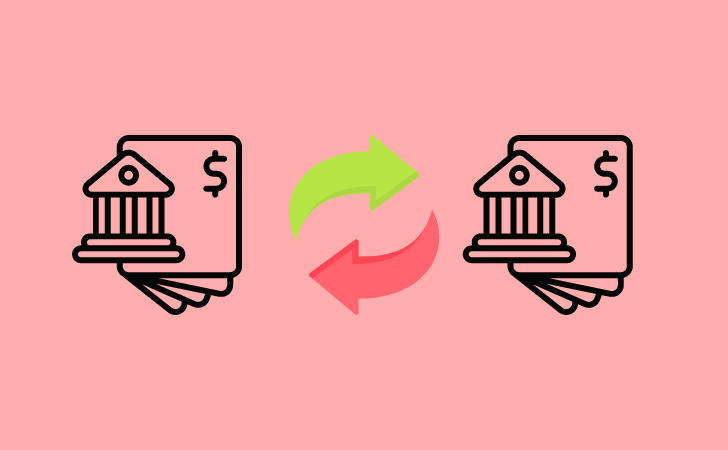
In Germany, transferring shares between brokerage accounts (moving shares to another brokerage account) is free of charge.
As early as 2004, the Federal Court of Justice ruled that banks are not allowed to charge any fees for the transfer of securities (Az. XI ZR 200/03 ). The depot transfer is therefore free of charge .
How does the deposit transfer work? – Finanzip
You can transfer the entire share from brokerage firm A to brokerage firm B, or only a portion of the shares.
I found this blog, which is in German, to be helpful, as it describes in detail how to transfer a portion of your shares from Trade Republic to comdirect.
The transfer process takes time (approximately 6 weeks), during which time you will not be able to trade. In addition, stocks that are not handled by the company to which you are transferring cannot be transferred. Please be careful!

I am thinking of using this system to “use Trade Republic, which usually has low trading commissions, and transfer to comdirect as soon as I decide to return to Japan”.
Not sure how well that will work out, but I’ll do another post when we get the transfer!
Some securities, such as foreign stocks, have a separate fee called a third-party fee.
Taxes and tax exemptions you must know if you invest in Germany.
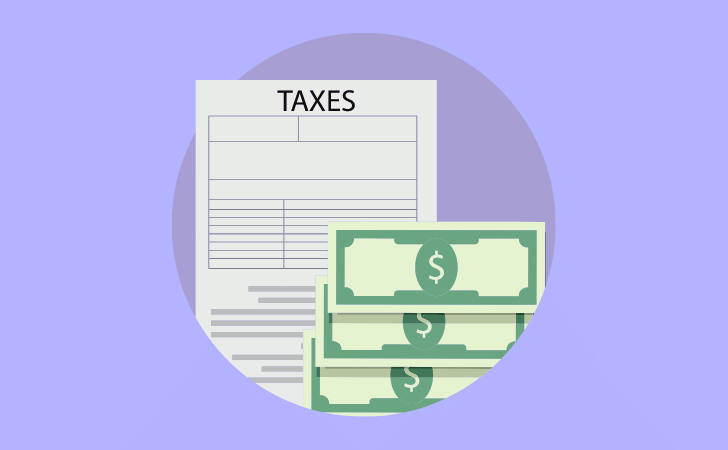
In Germany, capital gains tax is imposed on profits and dividends earned from stock trading.
The capital gains tax of 25%, plus an additional 5.5% solidarity surtax, results in a tax rate of 26.375%.
In addition, some people also have to pay a church tax (Kirchensteuer).
Withholding tax, so taxes are taken from profits and dividends. automatically deducted from profits and dividends. The amount of tax is automatically deducted from profits and dividends, and the brokerage firm receives the amount after deducting the tax.
German Tax Exemption
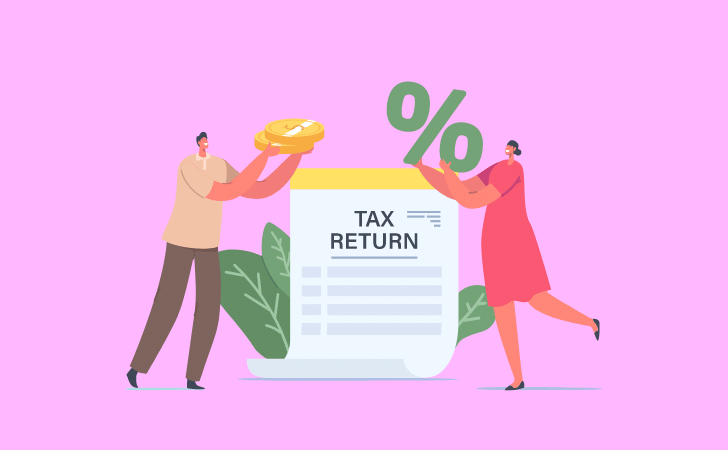
In Germany, there is a tax exemption, which means that there is no tax on capital gains (profits, dividends, etc. earned from stocks) up to 801 euros per person per year, or 1602 euros per year for a married couple. (as of 2022).
If you submit a basic allowance application (Steuerfreibetrag) to your bank or brokerage firm, which states, “Do not withhold taxes during the tax-free period,” no taxes will be deducted during the tax-free period.
Please note that if you do not file this application, taxes will be withheld even if you are within the tax exemption limit! Please note that you will not be able to receive any tax exemption without this application!
comdirect made it easy to apply online. It takes about 1 minute. Click here to see how to do it.
If you have accounts at more than one bank, you can allocate this tax exemption to each bank as you wish.
If you forget to file this application, you can still get the overpaid tax back by filing a tax return.
The explanation of the News Digest article was easy to understand.
The government is considering increasing this tax exemption to 1,000 euros per year (2,000 euros per year for married couples) starting in 2023.
Stock losses can be offset by gains.

If there is a loss on a stock, the negative amount can be offset by the positive amount.In Germany, they are offset within the “Equity Group” and the “Other Group”.
For example…
Profit on A shares +100, loss on B shares -70 ⇒ taxable at +30
Profit +100 in ETF, loss -70 in B shares => taxable is +100 (*can’t offset due to different groups)
This area is quite complicated…. I found this site’s explanation easy to understand, although it is in German.
But don’t worry! If you buy and sell in one account, the brokerage firm will offset the If you buy and sell in one account, the brokerage firm will calculate the tax by itself. If you buy and sell in one account, the brokerage firm will calculate the tax by itself, so there is nothing you need to do.
If you want to offset losses in more than one account, you must file a loss certificate (Verlustbescheinigung) with the tax office yourself.
There is no time limit for offsetting and it can be used until it turns positive. (Except when a loss certificate has been filed with the tax office.)
Which stocks should I buy in Germany?


Do you have any recommendations for stocks to buy in Germany?

I don’t know. If anyone is familiar with stocks, please let me know.
I am a beginner in investing, so I first studied by book.
I mainly buy ETFs (Exchange Traded Funds) after reading this book.
What is an ETF?
Although ETFs are mutual funds, they are unique in that they have the same characteristics as equity investments, such as the ability to buy and sell in real time through an exchange while watching market prices.
And many index-type ETFs are targeted to be linked to an index, such as the Nikkei Stock Average or the S&P 500, and the ETF itself contains a number of stocks (companies).
Therefore, investing in a single ETF allows for diversification, which is the basis of investment.
What are ETFs and the difference between ETFs and mutual funds explained in simple terms – Investing across the board
It was a bit difficult to choose ETF stocks introduced in Japanese books and websites because not many of them are available in Germany.
Especially comdirect is difficult to search…. I think Trade Republic is easier to use because you can search stocks by country, industry, or theme. I think comdirect is more difficult to search….
Japanese⇔German⇔English List of Investment Terms

As a reminder, we have compiled a list of German and English words related to stocks and investments.
| Japanese (language) | German (language) | English (language) |
|---|---|---|
| Investment Account | das Depotkonto | custody account |
| stock (company) | die Aktie | stock, share |
| investment | die Kapitalanlage | investment |
| return on investment | der Kapitalertrag | investment income |
| grace (of God, Buddha, etc.) | der Gewinn | profit |
| loss (e.g. assets or profits) | der Verlust | loss |
| dividend | die Dividende | dividend |
| account maintenance fee | die Depotführung die Depotgebühren | custodian fee |
| tax withholding at the source | die Quellensteuer | withholding tax |
| tax exemption | der Steuerfreibetrag | tax allowance |
| marketable securities | das Wertpapier | security |
| account transfer | der Depotübertrag | custody account transfer |
| contract | die Ausführung | execution |
Asset management in Germany is not as difficult as you might think.

At first, I thought it would be absolutely impossible to invest in Germany.

It is difficult to talk about stocks even in Japanese, and even more difficult to talk about stocks in German, a language I can barely read…
There was very little information in Japanese, and I had to do a lot of research on my own, which was difficult until I started.
But After opening an account and starting to invest, it has been so easy and smooth that I am not sure if I can beat it. So far.
I started this project for asset management purposes, but it also had the unexpected byproduct of making me keep an eye on world affairs and the economy. People change when their own money is at stake (laughs).
This article is a summary of some of the questions and concerns I had when I first started investing. I have tried to be as accurate as possible, but if there are any errors or omissions, I would appreciate your feedback.

I hope this article will be of help to anyone thinking of trying asset management in Germany!
The articles and information in this media are intended to provide general information related to investment only, and are not intended to solicit transactions in securities or other financial instruments.
The media management company and authors shall not be liable for any damages incurred by users based on articles, information, or externally linked websites published on this media.

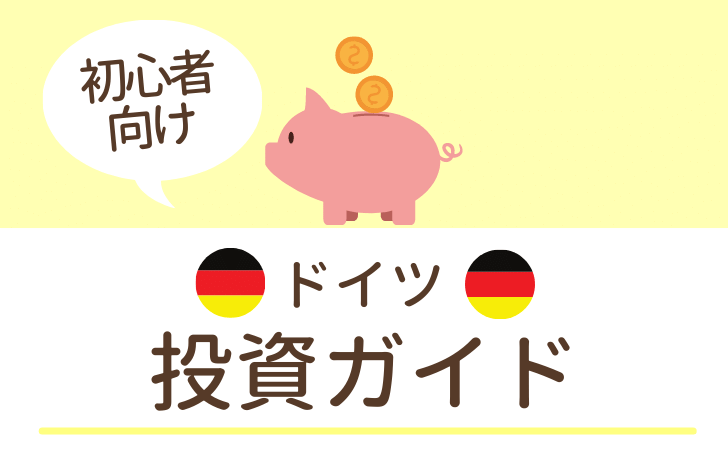
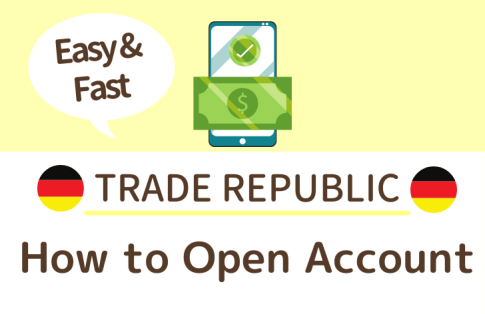










Hello, I’m Harii! I’ve lived in Germany for 3 years. I was born and raised in Japan, and I came to Europe in 2018 for my husband business.